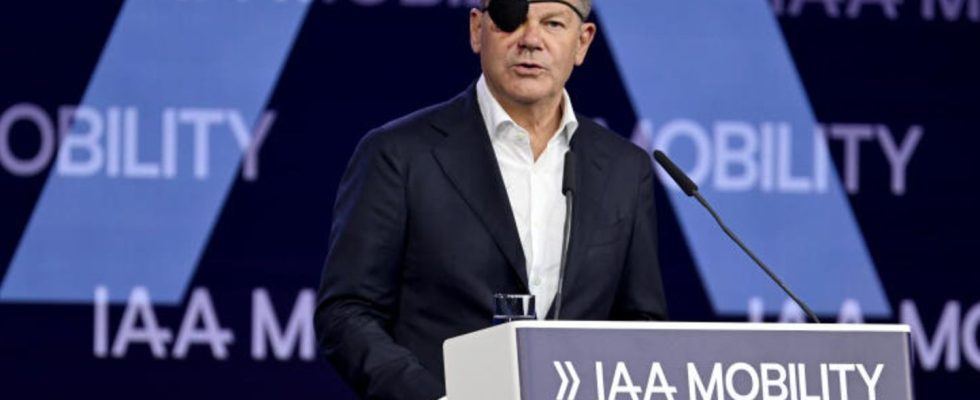At the opening of the IAA on Tuesday in Munich, Chancellor Olaf Scholz found words of praise for the innovative ability of German car manufacturers and suppliers. “The competitiveness of the auto industry in Germany is beyond question,” said Scholz, referring to the many Chinese automakers who are appearing at the auto show for the first time and now also want to gain a foothold in Germany.
The federal government is creating the conditions for Germany to remain climate-neutral and at the same time a strong industrial country by 2045, Scholz continued. He mentioned state investments in rails, roads and bridges, fiber optic lines, charging stations and hydrogen networks.
“The weekend also showed me personally: As nice as jogging is, for some routes it’s better to take the car,” said the Chancellor. He fell while jogging and now wears a black eye patch.
Olaf Scholz announces new law for electric cars
In the next few weeks, the chancellor announced a law that would oblige gas station operators to provide fast charging options for electric cars. By means of a “courageous” expansion of renewable energies, he held out the prospect of falling electricity prices and a reliable supply of raw materials. The government intends to continue to “deliberately strengthen” Germany as a location for the automotive industry with “good future-oriented jobs”, assured the Chancellor.
Almost 750 companies from 38 countries will be presenting their products at the IAA until Sunday. The main topics of the fair are climate protection, sustainable mobility and sustainable drives as well as digitization. Around 700,000 visitors are expected at the exhibition center and at events in downtown Munich by Sunday.
The IAA is accompanied by numerous protests against the auto industry. There were road blockades as early as Monday. On Tuesday, the Attac network, which is critical of globalization, demonstrated for a rapid turnaround in traffic in Germany and a restructuring of the car companies. Their products should “contribute to a social and climate-friendly transformation of mobility”.

